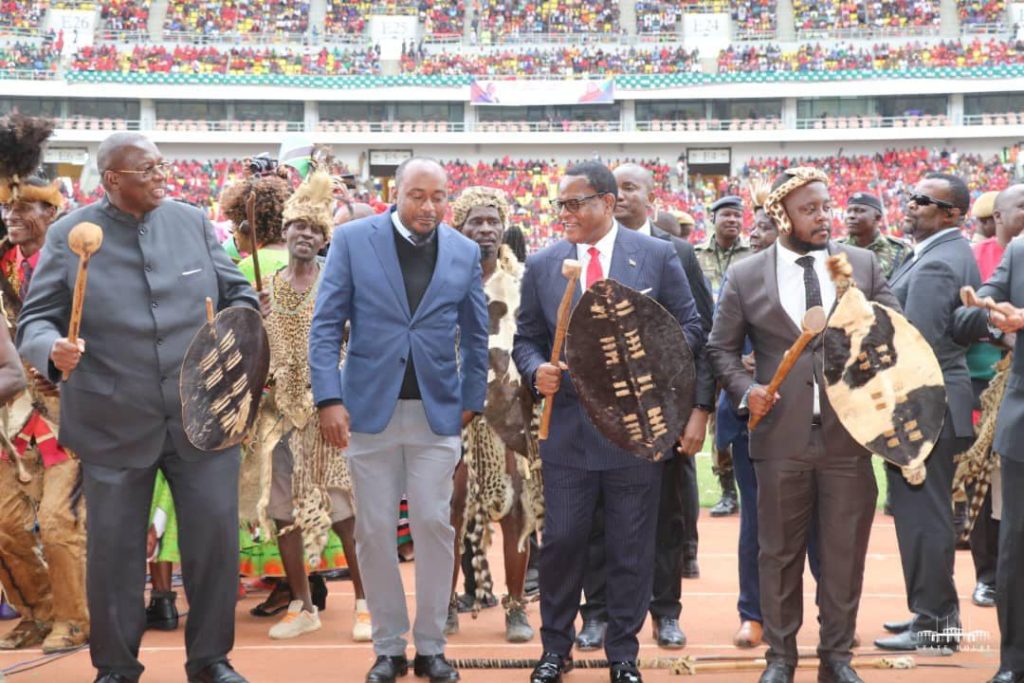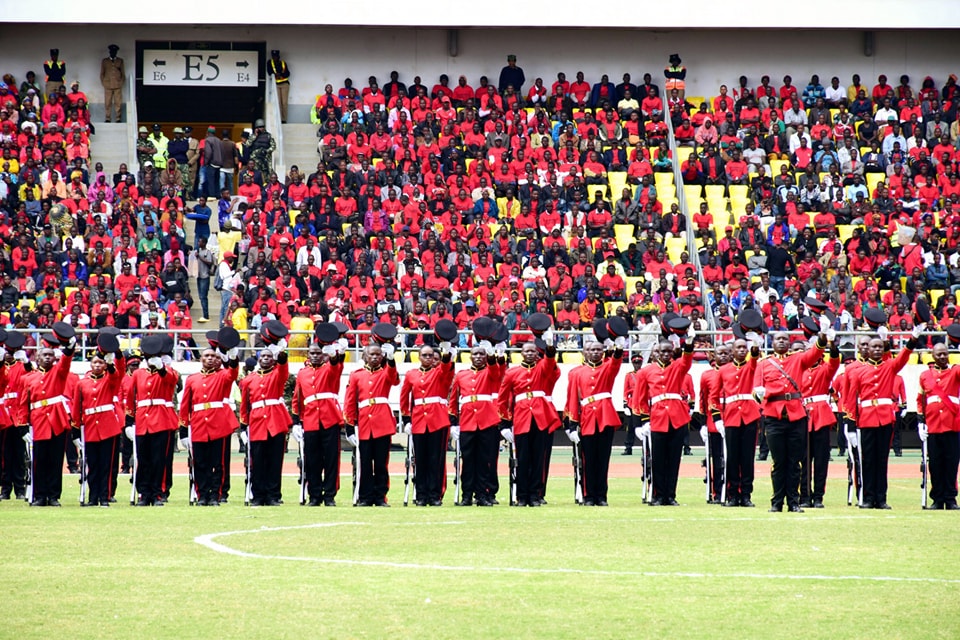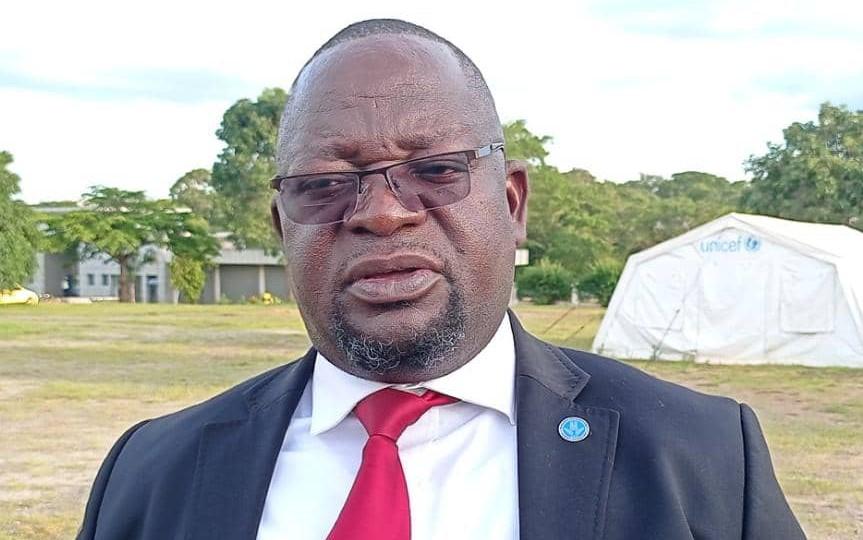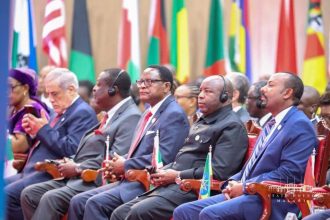Mixed views as Malawi hits 59
President Lazarus Chakwera on Thursday led Malawians in commemorating the 59th Independence Anniversary amid mixed reactions from stakeholders on the country’s achievements since attaining independence from Britain in 1964.
In separate responses to The Nation questionnaire on their sentiments on Independence Day, the respondents observed that during the 59 years, Malawi has achieved little, especially in the 30 years under multiparty democracy.

Political analyst Victor Chipofya from Malawi University of Business and Applied Sciences (Mubas) in Blantyre said in an interview on Thursday the country has not achieved much in structural and economic development in the 59 years of its independence.
He said sectors that have not progressed include health and education.
Chipofya said the nation experienced rapid developments from 1964 to somewhere around 1979, but the pace slowed down to the time the nation embraced democracy on June 14 1993 that ended one-party State.
He said: “We gained political independence, political freedom, yes. That is what we have. If you talk about development in general, we have retrogressed. The leaders that have come in the democratic Malawi have concentrated on enriching themselves.

“That is why the issues of corruption have become worse. Looting of government resources is the order of the day. The Bretton Woods institutions, the World Bank and the International Monetary Fund, have continued to dictate us on economic issues.”
Chipofya said others argue that colonialists should have been left to stay longer to allow development flourish, but he he believes what Malawi needs is responsible leaders.
In a separate interview, Democratic Progressive Party (DPP) spokesperson Shadric Namalomba said despite having 59 years of independence, Malawi is in the abyss of poverty, hunger and death.
He said: “Particularly in the last three years, this negative progression has never been experienced before since our independence from the white rule of the British.

“As things are in this country, it is a mockery and insensitive to the voters, to Malawians to be asking them to celebrate on an empty stomach. We can’t even afford a meal a day, yet those celebrating today promised us three meals a day.”
Namalomba said almost every Malawian is feeling the pain of the high cost of basic services and consumer goods such as maize, salt, sugar, water, school fees and electricity, among others.
“There is no forex, no drugs in hospitals. We have the worst regime presiding over unfathomable corruption and fraud in this country. Yes, for majority of Malawians there is nothing to celebrate about,” he said.
United Democratic Front (UDF) secretary general Kandi Padambo said while the nation has been independent since July 1964, the nation has not made much headway.
He said: “The compensation is that, unlike during the one-party era, we now enjoy freedoms hitherto unknown to the average Malawian. We can freely express opinions on any aspect of our society.
“Corruption and other social ills can be exposed in formal and social media. This is the progress I suppose we have made. But we need to lend meaning to our political freedom by focusing some effort on the upliftment of the living standards of the majority of Malawians; otherwise our independence so gallantly sacrificed for will remain illusory. Economic independence is insuperable from political independence. The one who pays the piper calls the tune.”
Mubas associate professor of economics Betchani Tchereni observed that it is sad that after 59 years, Malawi continues to depend heavily on other nations for economic support.
He said: “We import too much, we depend on donations, we depend on loans and we are in huge debts. Such kind of dependence affects governance, as the country is tied to foreign support.”
Tchereni further expressed worry that 59 years later, the country is still grappling with challenges of access to electricity and water, poor road network, high unemployment levels and inadequate and under-resourced health and education facilities.
He urged government to strive to promote infrastructural development and industrialisation.
On his part, education rights activist Benedicto Kondowe, who heads the Civil Society Education Coalition said despite education being key to development, the country has poor education standards and is rated badly at global level
He asked government to focus on ensuring more qualified teachers in schools, as well as adequate learning materials, teaching space and other infrastructure.
Said Kondowe: “When we talk of the right to education, we should be talking about quality education. We have failed tremendously in terms of standards.
“We also need to promote education that responds to the needs of the country. We should promote skills development. We should have a competency based curriculum.”
However, he acknowledged that the country has made some strides citing increased enrolments, investment in infrastructure though not sufficient and private sector involvement which has helped increase access to education.
Eight years ago, Parliament allowed the government to borrow $50 million from Export-Import (Exim) Bank of India to buy 177 tractors, 144 maize shellers, seed cumulators and fertiliser application drilling machines to mechanised farming.
However, 100 of the tractors, according to a 2016 report by the Office of the Ombudsman, ended up being sold to politicians and senior government officials at low prices.
In December 2022, media reports revealed that as of September 2022, public debt stood at K7.3 trillion, up by 14 percent from K6.38 trillion in March 2022, and this contributed to the country’s poor development.
The World Bank’s Malawi Economic Monitor shows that the country’s overall exports have been on the decline for the past 10 years
Party spokespersons for Malawi Congress Party, UTM Party and Alliance for Democracy had not responded to our questions by press time at 8pm on Thursday.





